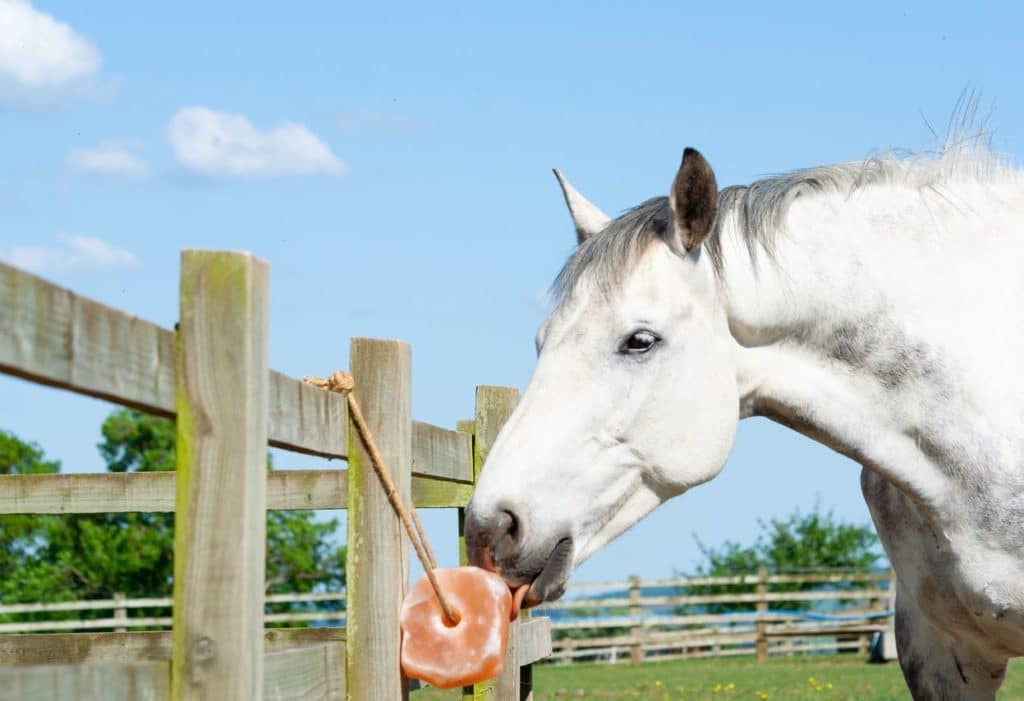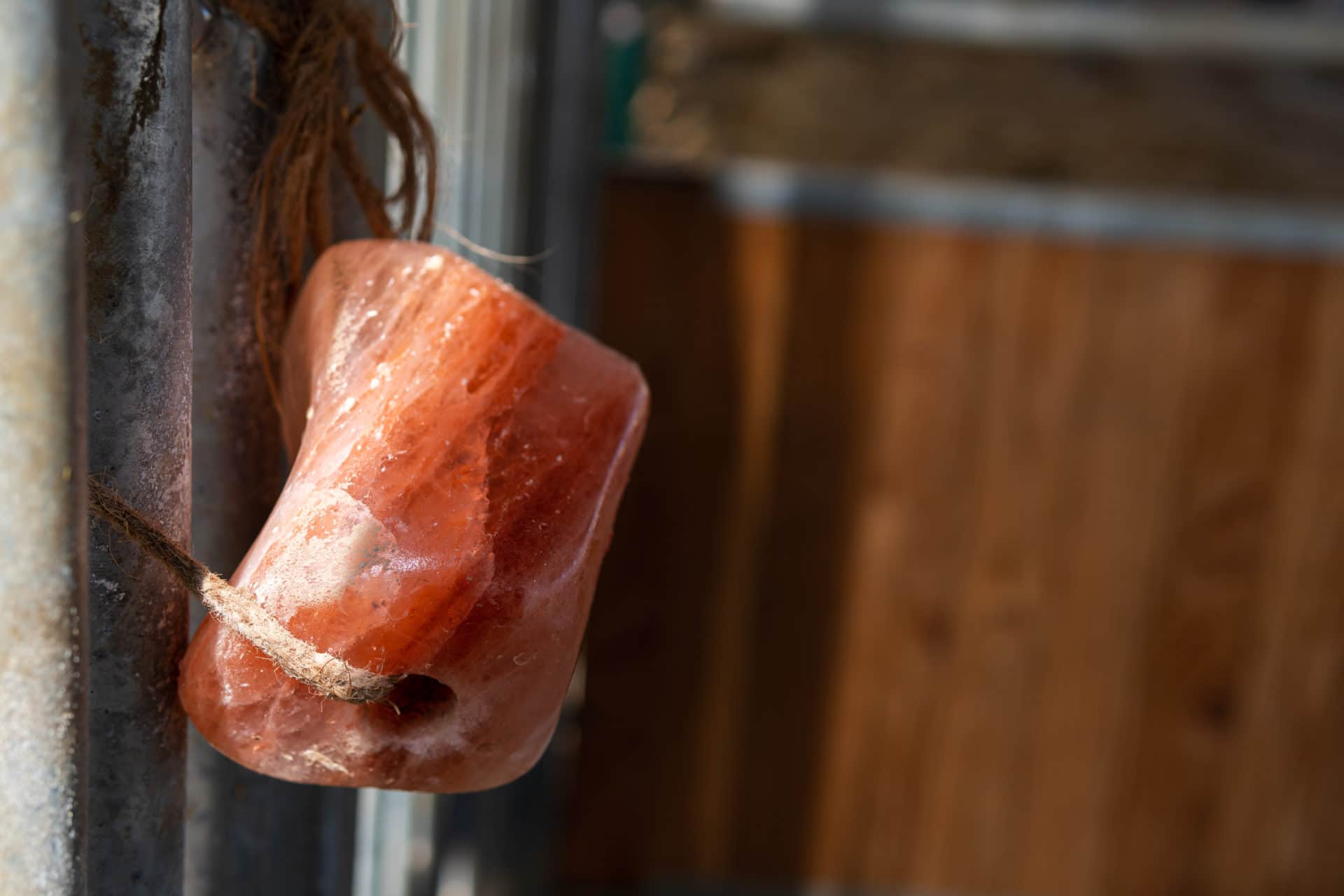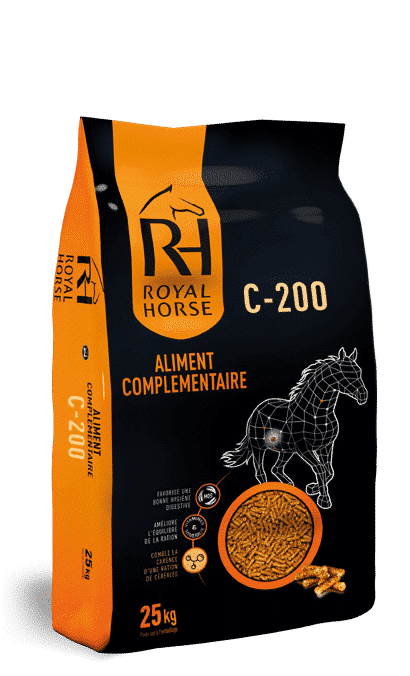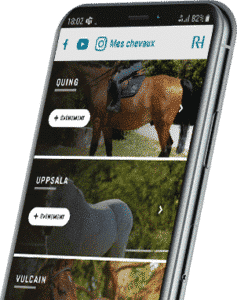Grain-rich rations have an unbalanced mineral content. It is very important to feed your horse only supplements that are specifically designed for horses. Each species has specific needs and different ratios of minerals; an inappropriate product could be detrimental to your horse’s health.
Benefits of mineral supplements
Horses need various nutrients and trace elements.

Minerals, essential for your horse
Horses need a sufficient and balanced supply of phosphorus and calcium and, above all, the calcium-phosphate ratio must be respected. An excess of one nutrient over the other can have dangerous consequences for the horse. For example, too much phosphorus can weaken the bones by preventing calcium from binding to them.
It is essential that the daily ration provide a sufficient amount for your horse’s physiological needs or workload.
When balanced feeds are given, mineral supplements are not necessary on a daily basis, as the minerals are already present, their quantity is reasoned in relation to an average value of feed distributed per day which is proportional to the weight of your horse and its energy needs.
When to supplement your horse?
There are three times of the year when it is best to supplement your horse. First of all, during the change of seasons, which are often more delicate periods for horses, such as autumn when the winter coat is being prepared, and spring during the moult. Finally, in the summer, water loss (perspiration) is more important, resulting in a loss of mineral salts. A supplementation will be done on a minimum of 20 days to be effective.
For horses fed with traditional rations (cereals and forage) a more reasoned supplementation will be necessary including also the protein contribution as proposed by Royal Horse with its complementary feed of cereals and forage C200, reasoned and conceived specifically for this type of ration.
I give my horse a balanced diet. Should I still give him mineral supplements?
For a standard horse and a use in sport or leisure, the various feeds provide all the nutrients necessary to cover the needs of your horse and a supplementation is not necessary
However, in some cases, often linked to extreme conditions such as workloads that are much higher than average during a given period or in the case of horses that need a lot of feed or risk becoming overweight, mineral supplementation can be considered in order to prevent deficiencies. But in this case you should be advised by your veterinarian or an equine nutritionist who will be able to recalculate the quantities necessary for your horse and that you could not find on the instructions for use
In general, only give your horse supplements designed for horses.
Royal Horse recommendation: VIA Mineral VIA Mineral Tradi, mineral and vitamin supplement




